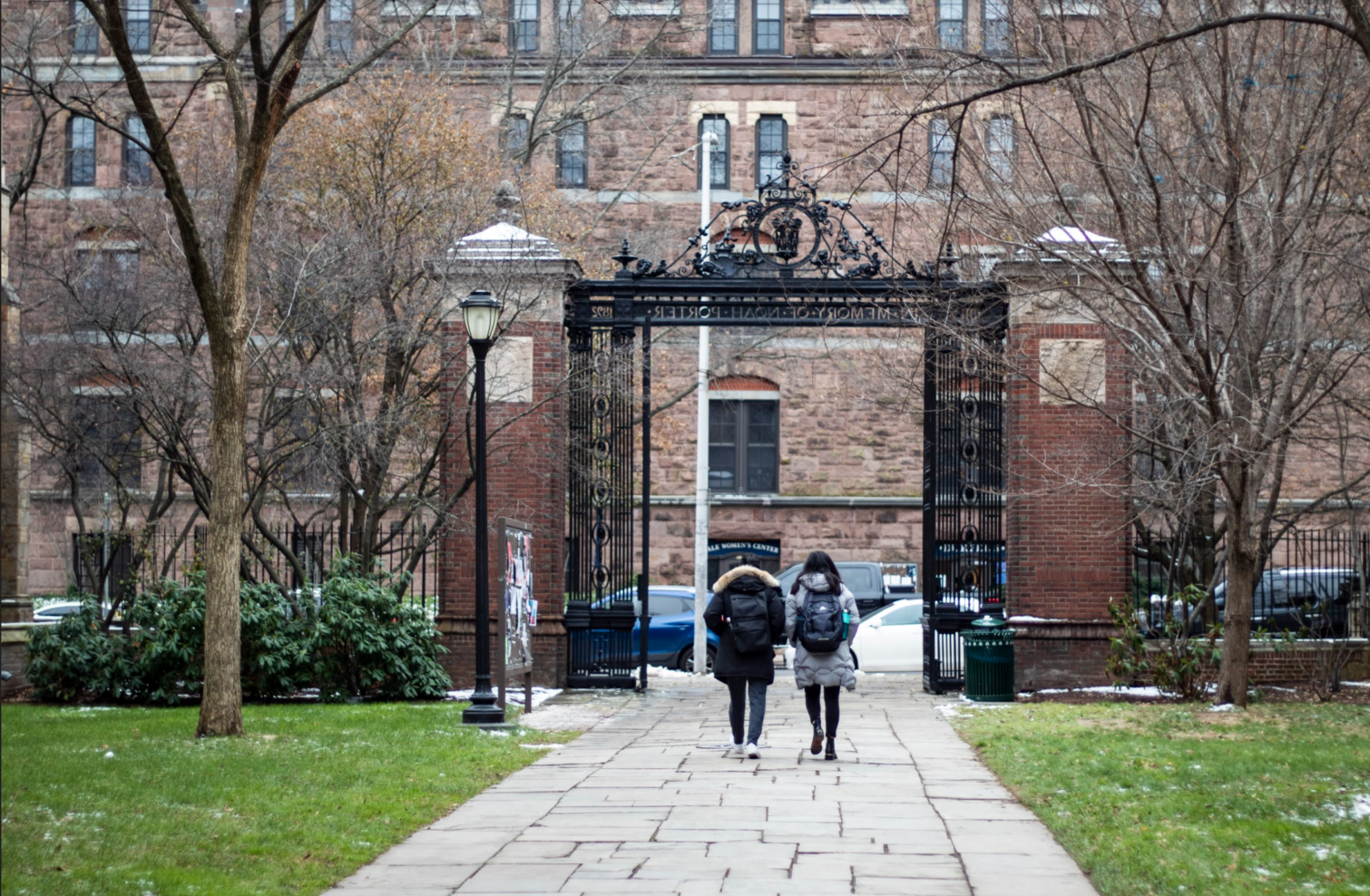
Courtesy of Zoe Berg
Following a presidential transition, the Biden administration dropped the Department of Justice lawsuit in February. The lawsuit, originally filed last October by then-President Donald Trump, claimed that Yale discriminated against white and Asian American applicants in the admissions process.
The DOJ sued Yale in October 2020. This February, the DOJ, under the Biden administration, announced a “Notice of Voluntary Dismissal” filed to the federal District Court of Connecticut. The DOJ’s dismissal of the lawsuit was “without prejudice,” or without a final determination of whether or not Yale discriminates in its admissions process.
“Yale is gratified that the U.S. Justice Department has dropped its lawsuit challenging Yale College’s admissions practices,” University spokesperson Karen Peart wrote to the News after the dismissal was announced. “Our admissions process has allowed Yale College to assemble an unparalleled student body, which is distinguished by its academic excellence and diversity. Yale has steadfastly maintained that its process complies fully with Supreme Court precedent, and we are confident that the Justice Department will agree.”
Prior to the lawsuit, the DOJ first issued a report last August. The report found that Yale violated Title VI of the 1964 Civil Rights Act, which prohibits any institution or activity receiving federal funding from discriminating on the basis of race, color or national origin. The DOJ directed Yale to submit proposals by Sept. 15, to amend their admissions process. Noncompliance would lead to a lawsuit.
In an October correspondence with the News, Dean of Undergraduate Admissions and Financial Aid Jeremiah Quinlan told the News that no such proposals had been released to the public and declined to answer whether Yale had submitted a private proposal to the DOJ.
The suit accused Yale of “racial balancing,” a practice similar to imposing racial quotas or designating a certain number of slots for specific racial groups. According to the DOJ spokesperson, the practice “disproportionately hurts white and Asian American applicants,” but also “relies upon and reinforces damaging race-based stereotypes” by “signal[ing] that racially-favored applicants cannot compete against Asian and white applicants.”
Some Yale students criticized the lawsuit, stating that white and Asian American people are overrepresented in such institutions. Vice President of the Black Men’s Union Isaac Yearwood ’22 said that when a large crusade for racial justice occurs in the United States like the Black Lives Matter protests last May, there is resistance to racial justice through other means. A statement signed by 23 student organizations, including the Asian American Students Alliance and Asian Students for Ethnic Studies, stated that the lawsuit was “a thinly veiled ploy to use Asian Americans to attack the system of affirmative action and maintain unequal access to higher education, at the expense of Black, Indigenous and Latinx individuals.”
Though the suit has been dropped, the DOJ will still continue its investigation into Yale’s Title VI compliance, according to the DOJ spokesperson. Peart added that the dismissal will resume communication between the DOJ and the University that was originally cut off by the notice of violation.
Then, on Feb. 25, Students for Fair Admissions — the plaintiff in the high-profile admissions lawsuit against Harvard University — filed a lawsuit against Yale reiterating the claims filed by the DOJ in the Trump administration.
The organization, known to challenge university admissions practices, hoped to intervene in the DOJ case filed last October, but the motion was denied in January.
“Yale, Harvard, the University of North Carolina, the University of Texas and many dozens of other highly competitive colleges and universities employ admissions practices that are discriminatory, unnecessary, and unconstitutional,” Edward Blum, the president of SFFA, wrote in a press release. “Students applying to undergraduate and postgraduate programs should be judged on their individual talents, character, academic skills, extracurricular achievements and socio-economic background but not the color of their skin.”
The Supreme Court has twice upheld affirmative action since the court originally found it constitutional in Regents of the University of California v. Bakke in 1978.







